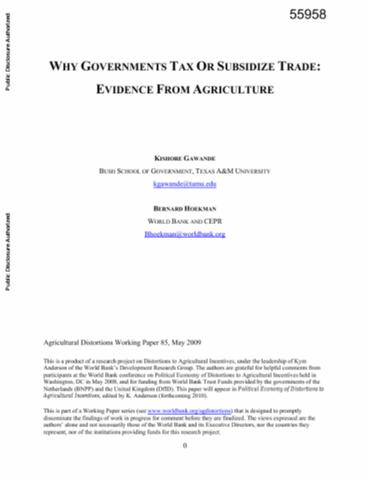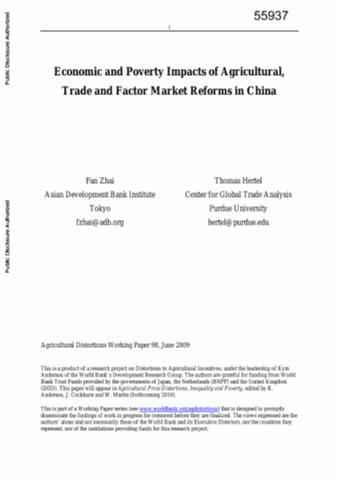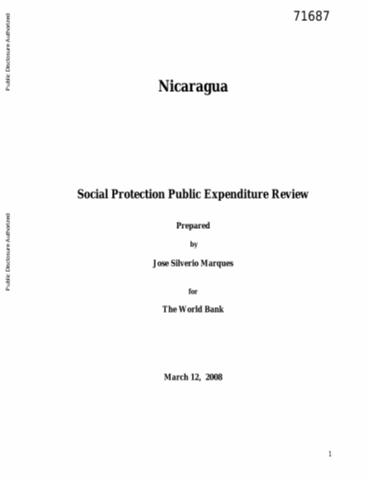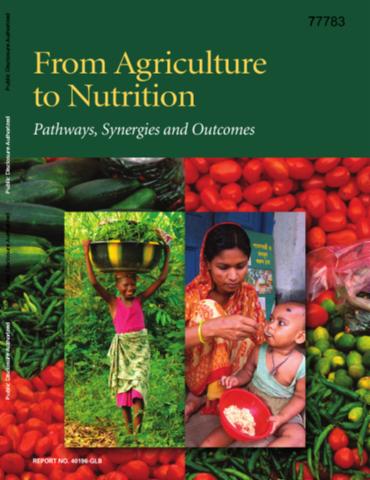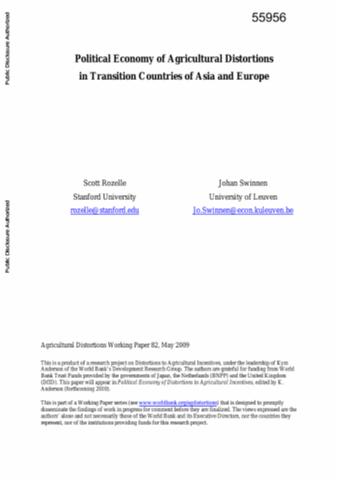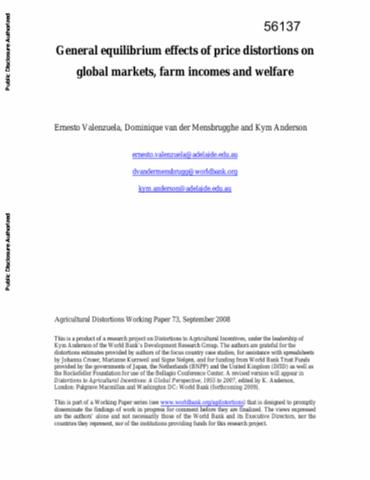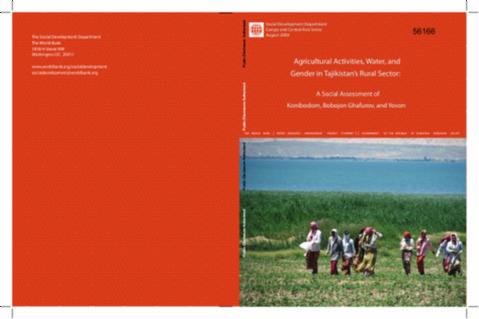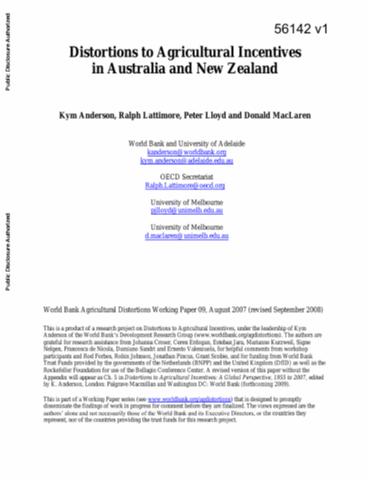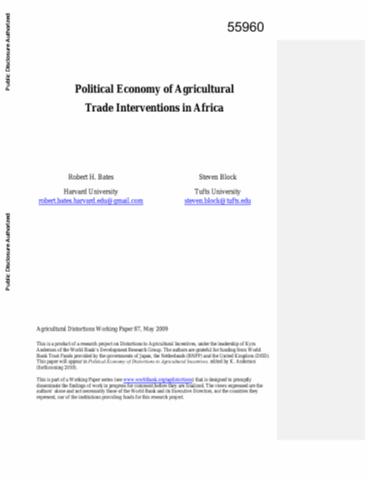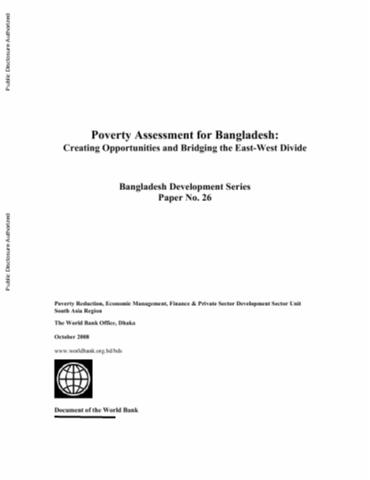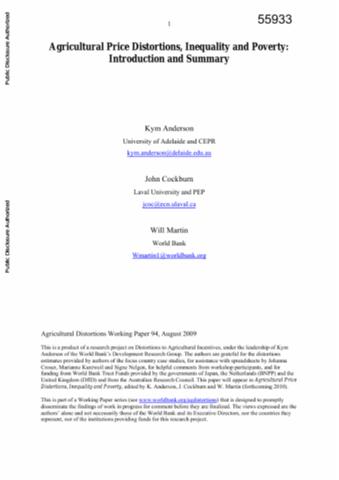Why Governments Tax or Subsidize Trade
This paper empirically explores the political-economic determinants of why governments choose to tax or subsidize trade in agriculture. The authors use a new data set on nominal rates of assistance (NRA) across a number of commodities spanning the last five decades for 64 countries. NRAs measure the effect on domestic (relative to world) price of the quantitative and price-based instruments used to regulate agricultural markets. The data set admits consideration of both taxes and subsidies on exports and imports.

